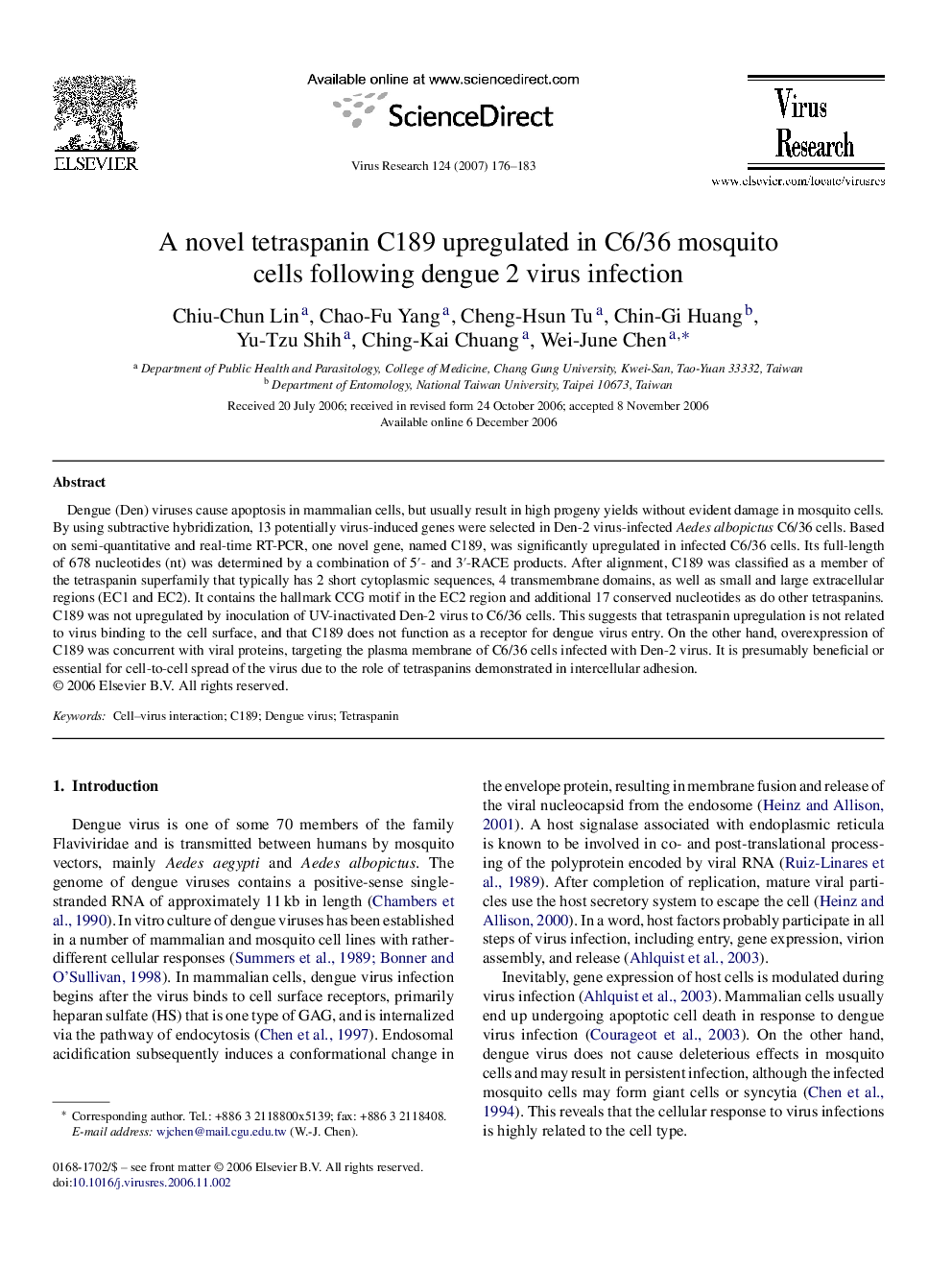| Article ID | Journal | Published Year | Pages | File Type |
|---|---|---|---|---|
| 3430987 | Virus Research | 2007 | 8 Pages |
Dengue (Den) viruses cause apoptosis in mammalian cells, but usually result in high progeny yields without evident damage in mosquito cells. By using subtractive hybridization, 13 potentially virus-induced genes were selected in Den-2 virus-infected Aedes albopictus C6/36 cells. Based on semi-quantitative and real-time RT-PCR, one novel gene, named C189, was significantly upregulated in infected C6/36 cells. Its full-length of 678 nucleotides (nt) was determined by a combination of 5′- and 3′-RACE products. After alignment, C189 was classified as a member of the tetraspanin superfamily that typically has 2 short cytoplasmic sequences, 4 transmembrane domains, as well as small and large extracellular regions (EC1 and EC2). It contains the hallmark CCG motif in the EC2 region and additional 17 conserved nucleotides as do other tetraspanins. C189 was not upregulated by inoculation of UV-inactivated Den-2 virus to C6/36 cells. This suggests that tetraspanin upregulation is not related to virus binding to the cell surface, and that C189 does not function as a receptor for dengue virus entry. On the other hand, overexpression of C189 was concurrent with viral proteins, targeting the plasma membrane of C6/36 cells infected with Den-2 virus. It is presumably beneficial or essential for cell-to-cell spread of the virus due to the role of tetraspanins demonstrated in intercellular adhesion.
